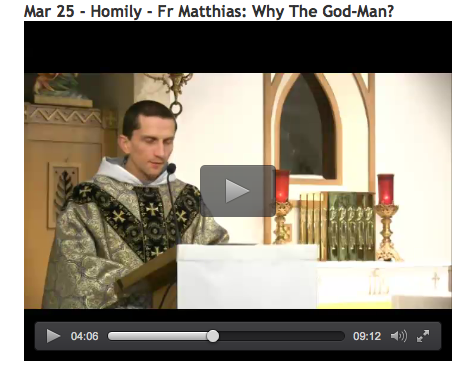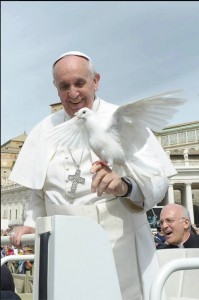I found this on Frank Weathers website Why I am Catholic. It is an excerpt from A Digest of the Doctrine of St. Thomas on the Incarnation by the Anglican cleric William Gilson Humphry written in 1868 which sums up excellently the doctrine of Bl. John Duns Scotus on the Incarnation:
The third view of the Incarnation is that taken by the Scotists, by Suarez, and by many other theologians both ancient and modern. It teaches—and so far in accordance with Thomist theology, that Jesus came principally to save sinners, and for that end came in passible flesh; but here its agreement ceases. It asserts that even if Adam had never sinned, Jesus would yet have come, and come by means of Mary, in impassible flesh; that He was predestinated the Firstborn of creatures before the decree which permitted sin; that the Incarnation was from the first an intentional and integral part of the scheme of creation; that it was not merely occasioned by sin, but that sin only determined the manner of it, and its accompaniments of suffering and death. And it is as regards the manner of the Incarnation alone, as speaking of our Lord’s coming in passible and mortal flesh, that the Scotists understand those passages in Holy Scripture, in the writings of the Fathers, and in the Office Books of the Church, which at first sight seem to make for the Thomist view. The Scotists dwell very much on the doctrine that Jesus was decreed before all creation, and therefore before the permission of sin. They hold that all men exist because of Christ, and not Christ because of them, that all creation was for Him, and was not only decreed subsequently to His predestination, but for His sole sake.
They found again upon His being the First Begotten and Exemplar of the predestinate. And they go on to establish their view by arguments drawn from reason, from the natural order of things, from the relative value of means and ends, from the grace of the unfallen Adam, which is alleged to have been conferred on him because of Christ, from the Incarnation having, as St. Thomas teaches, been revealed to Adam, who, although he lost hope and the love of God when he sinned, did not lose his faith.
They urge further, that on the Thomist view, Christ was only an “occasioned good,” and, a still more unworthy supposition, occasioned by sin; or again, that Christ would have to rejoice in Adam’s sin, as owing to it His existence, grace, and His glory as man.
Again, it is said, that if Christ was decreed after us, and because of us, and only to redeem us, three monstrous consequences would follow:
1. That Christ would owe us a debt of gratitude.
2. That we should in certain respects be more excellent than He.
3. That sin was necessary to His existence.
On the Scotist view of the Incarnation the following would be the order of the Divine Decrees—the order of intention, that is, for there can of course be no order of time with God.
1. God understood Himself as the Sovereign Good.
2. He understood all creatures.
3. He predestinated creatures to grace and glory.
4. He foresaw men falling in Adam.
5. He pre-ordained the Passion of Christ as the remedy for this fall.
Thus Christ in the Flesh, and all the elect members of His mystical Body also, were foreseen and predestined to grace and glory, before the foresight either of sin or of the Passion.
It will be observed that both Thomists and Scotists lay the utmost stress on the doctrine that Jesus came, as He has come, expressly and principally to redeem mankind from sin, and that consequently a remedial character pervades all His mysteries, both such as have to do with His being our example, and such as have to do with His being our atonement, while the same character is stamped also upon His enactments as our legislator.
Further, the Thomists allow that redemption from sin was by no means the sole end of the Incarnation. They admit that the manifestation of the Divine Omnipotence, Wisdom, and Goodness was one end, and the Headship of the whole Church of angels and men was another.



